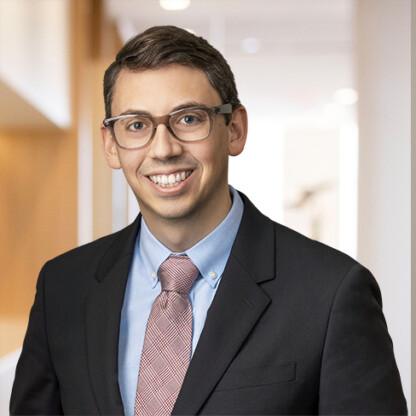Foley partner Adam Hepworth is speaking at the upcoming California Society for Healthcare Attorneys’ 2023 Fall Seminar in a session titled “FQHC Affiliations: Partnering with Community-Based Primary Care.”
The session will begin with a brief overview of the fundamentals of federally qualified health centers (FQHCs) before addressing the opportunities and challenges involved in health system and medical group partnerships with FQHCs. Topics to be covered include:
- Regulatory requirements tied to HRSA grants, Medicare, and Medicaid
- The value proposition for quality care delivery and reimbursement
- Legal challenges involved in FQHC affiliations
- Models of successful affiliations
To register, please click here.
CLE
The California Society for Healthcare Attorneys is a State Bar of California-Approved MCLE provider. The 2023 Fall Seminar provides 6.5 hours of MCLE credit.
People
Related Insights
26 July 2024
Video
Ten Minute Interview: Art Ownership
Brian Lucareli, director of Foley Private Client Services and co-chair of Foley’s Family Offices group, sits down with Lindsey Birch, associate and member of our Intellectual Property practice group, for a 10-minute interview to discuss art ownership.
26 July 2024
Foley In Fashion
Passing the Torch: Technology in the Opening Ceremony Fashion at the Paris Olympics
With the 2024 Olympic Games set in Paris, France, one of the world’s fashion capitals, athletics and aesthetics collide to take center stage at the much-anticipated opening ceremony.
25 July 2024
Foley In Fashion
SHEIN’s $1.9 Million Data Breach: A Cautionary Tale for Online Fashion Brands
The New York Attorney General fined fast-fashion company, Shein Distribution Corporation, $1.9 million for failing to properly handle a data breach in late 2022.
